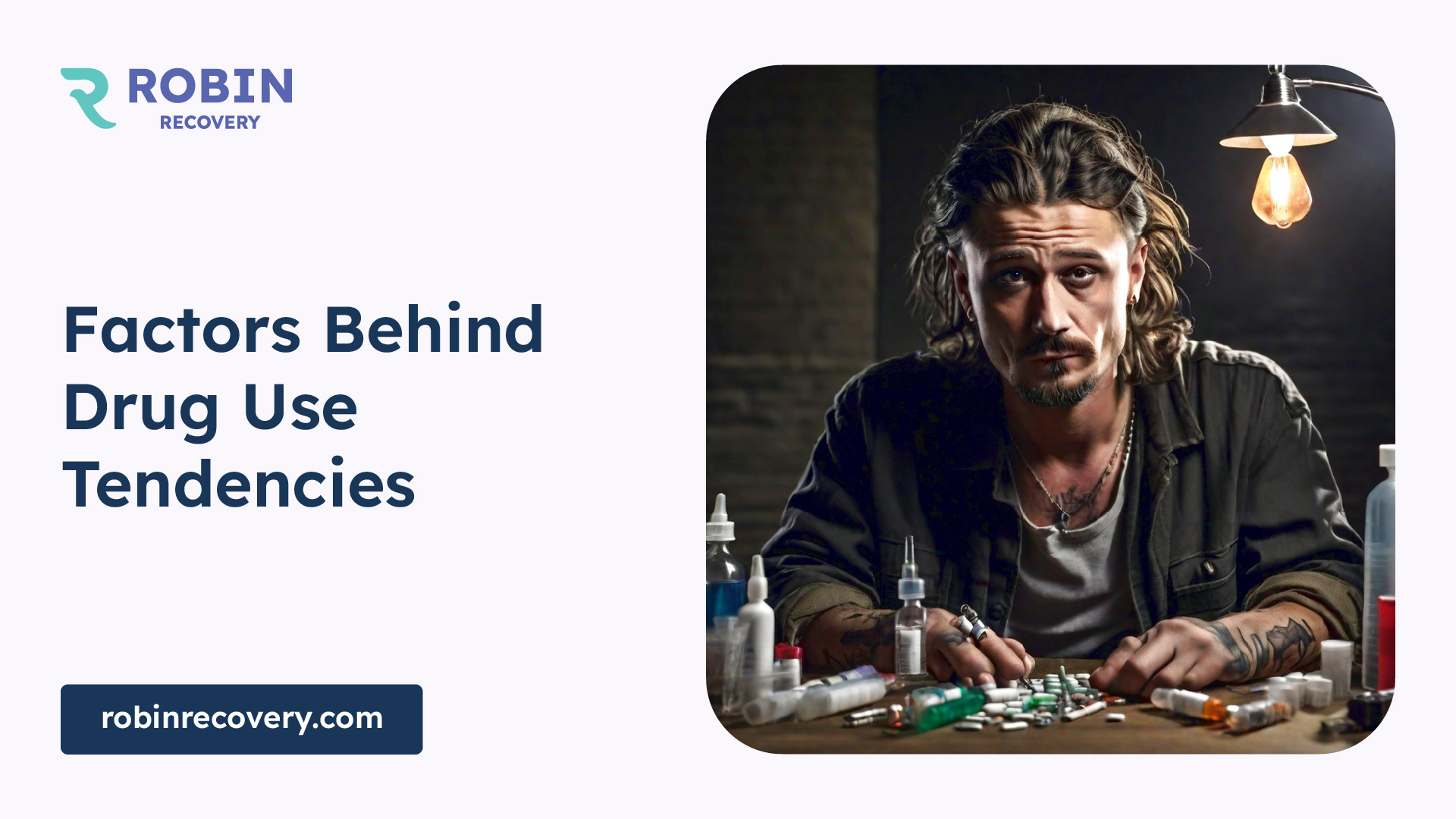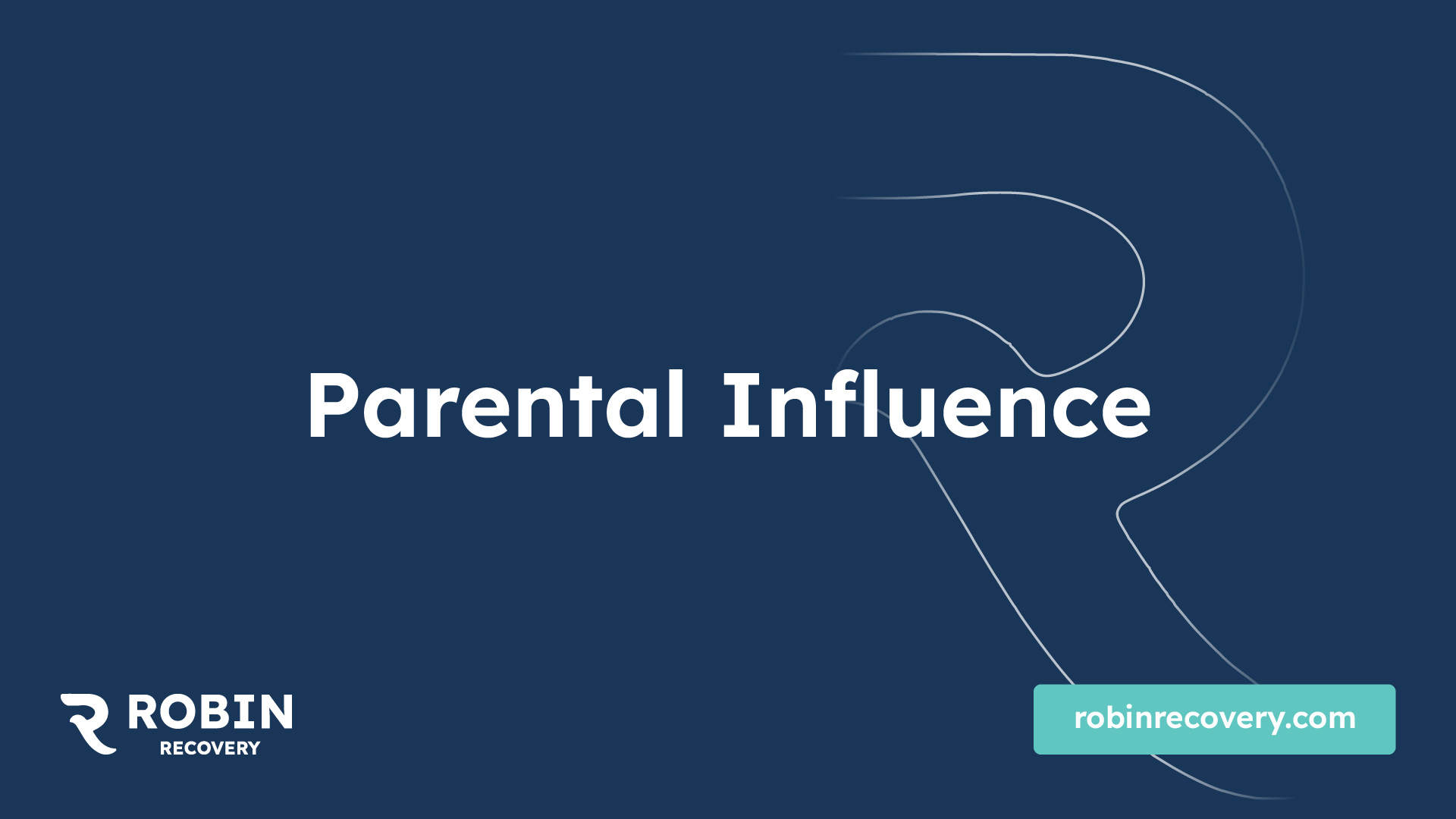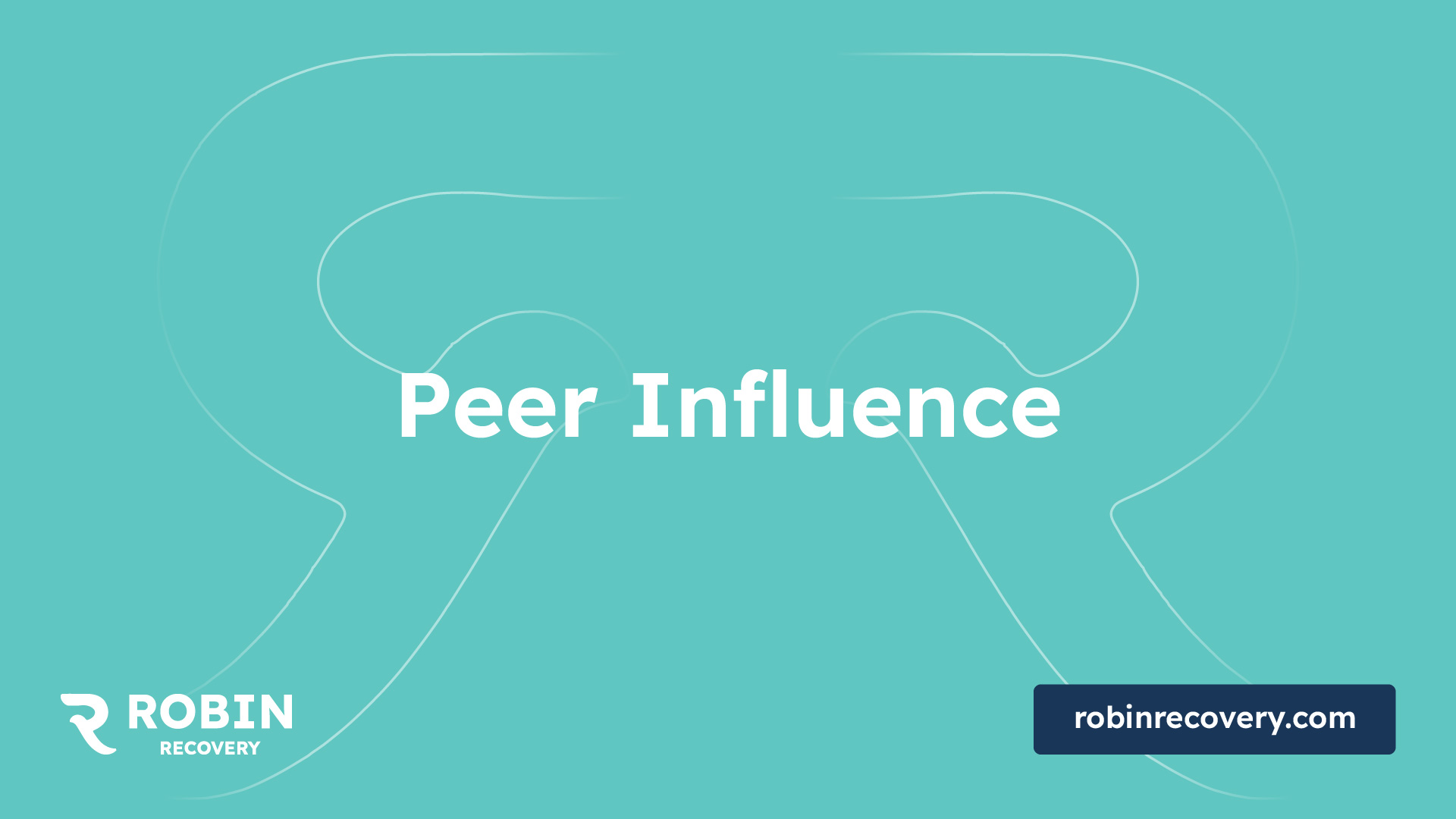Factors Behind Drug Use Tendencies


Influencing Factors in Drug Use
When examining the factors that contribute to drug use tendencies in individuals, it becomes evident that various influences come into play. Two significant factors that impact drug use are socioeconomic status and family environment.
Socioeconomic Status and Drug Use
Research has shown a strong association between lower socioeconomic status and drug use tendencies, particularly among adolescents. Adolescents from families with lower socioeconomic status have been found to have higher rates of episodic and frequent drug use compared to those from more affluent backgrounds [1]. This association has been observed with substances like cannabis and cocaine. However, it's important to note that low socioeconomic status does not necessarily lead to drug use in all cases.
Drug Use TendencyLow Socioeconomic StatusHigh Socioeconomic StatusExperimental UseMore likelyLess likelyEpisodic and Frequent UseMore likelyLess likely
Figures courtesy NCBI
It's crucial to understand that these associations are not deterministic and that many other factors contribute to an individual's drug use tendencies. However, the influence of socioeconomic status should not be overlooked when considering prevention efforts and targeted interventions.
Family Environment and Drug Use
The family environment plays a crucial role in shaping an individual's behavior, including drug use tendencies. Factors such as parental education and substance abuse within the family can significantly impact an individual's likelihood of engaging in drug use.
Research has shown that lower parental education is associated with higher rates of experimental and frequent drug use among adolescents. Adolescents from families with lower levels of parental education have a higher likelihood of using substances like cocaine and heroin. It's important to note that parental education is not the only determining factor, and many other variables can influence drug use tendencies.
Furthermore, substance abuse within the family can contribute to an increased risk of drug use among individuals. Growing up in an environment where substance abuse is prevalent can normalize drug use and increase the likelihood of experimentation and even addiction.
Understanding the influence of the family environment on drug use tendencies can help inform prevention strategies and interventions. By promoting positive family dynamics, open communication, and providing resources for support, it is possible to create a nurturing environment that reduces the risk of drug use among individuals.
In addition to socioeconomic status and family environment, there are several other factors, such as peer influence and psychological factors, that contribute to drug use tendencies. These factors interact in complex ways, and it's important to address them comprehensively when designing prevention efforts and treatment programs. For more information on risk and protective elements influencing drug usage, refer to our article on risk and protective elements influencing drug usage.

Parental Influence
Parents play a significant role in influencing their children's behavior and decisions, including their susceptibility to drug use. In this section, we will explore two key aspects of parental influence: parental education and substance abuse within the family.
Parental Education and Drug Use
Research suggests that parental education levels can impact a child's drug use tendencies. Lower parental education has been found to be significantly associated with experimental use and frequent use of cocaine and heroin among adolescents [1].
Higher levels of parental education can provide children with a stronger support system, access to resources, and better opportunities for personal development. This can contribute to a more stable and nurturing environment, which may reduce the likelihood of engaging in drug use.
Substance Abuse in the Family
The presence of substance abuse within the family can have a profound impact on children. Parents with substance use disorders (SUDs) may struggle with effective communication and emotional regulation, leading to poor communication and potential domestic violence [2]. These challenges can significantly affect children's developmental, social, and interpersonal outcomes.
Children affected by parental substance abuse are at a higher risk of developing various childhood disorders, such as eating disorders, behavior disorders, anxiety disorders, depression, post-traumatic stress disorder, and substance use disorders. Additionally, children of parents with SUDs are three times more likely to experience physical or sexual abuse, which further increases the risk of developing substance abuse problems themselves.
Despite these challenges, family support can be a crucial factor in facilitating abstinence and recovery. Emotional and psychological support from the family, coupled with the individual's own motivation and commitment to quitting, can contribute to successful abstinence. Building a supportive and nurturing environment within the family can help individuals overcome the challenges associated with substance abuse.
Understanding the impact of parental influence on drug use tendencies emphasizes the importance of addressing family dynamics and providing support to both parents and children. By promoting education, communication, and emotional well-being within the family, we can create a positive environment that reduces the risk of drug use and supports individuals in their journey towards a healthier lifestyle.

Peer Influence
During adolescence, peer influence plays a significant role in shaping individuals' behavior, including their propensity for drug use. Peers provide a sense of belonging and acceptance, and their attitudes and behaviors can strongly influence an individual's decision to engage in substance use. This section explores two aspects of peer influence: peer pressure and the influence of drug-using friends.
Peer Pressure and Substance Use
Adolescents often face peer pressure to conform to certain behaviors, including substance use. The desire to fit in and be accepted by their peers can lead some individuals to experiment with drugs or engage in substance use more frequently. Research has shown that adolescents who report having drug-using friends are more likely to engage in substance use compared to those who do not have such friends [4].
It is important to note that peer pressure during adolescence may strongly shape substance use behavior, as peers may provide access to substances or actively encourage or discourage use [5]. Adolescents tend to mimic the behavior or perceived behavior of influential individuals, such as family members and friends, particularly those they are close to and value. Therefore, efforts to prevent drug use should address the role of peer environments and help adolescents navigate peer pressure in a healthy and informed manner.
Influence of Drug-Using Friends
The influence of drug-using friends on an individual's substance use cannot be underestimated. Research has consistently shown significant correlations between adolescent use and the perceived use of their peers, even more so than the actual use of their peers [5]. Adolescents tend to overestimate the substance use behaviors of their peers, which can contribute to their own substance use initiation or escalation.
The influence of drug-using friends extends beyond peer pressure. Close relationships with friends who engage in substance use can provide access to drugs and normalize the behavior, making it more acceptable in the social circle. Concordance with best friends' substance use has been observed across various substances, including cigarettes, alcohol, and marijuana [5]. This influence tends to be most pronounced during adolescence, particularly in middle school and early high school.
Prevention efforts aimed at countering peer normative pressures should begin before middle school and continue through high school. These efforts should address the role of both peer and family environments, as both have been found to be relevant during these stages of development [5]. By equipping individuals with the necessary skills to resist peer pressure and fostering a supportive and drug-free social environment, we can help reduce the likelihood of substance use initiation and promote healthier choices.
Understanding the influence of peers on drug use tendencies is crucial in developing effective prevention strategies. By addressing the role of peer pressure and the influence of drug-using friends, we can create a supportive environment that promotes positive decision-making and empowers individuals to resist the pressures of substance use.
Psychological Factors
When examining the factors that contribute to drug use tendencies in individuals, it's crucial to consider the role of psychological factors. These factors can significantly influence an individual's susceptibility to substance use and addiction.
Psychological Disturbance and Substance Use
Psychological disturbance, including disorders such as anxiety disorders and mood disorders, can serve as a pathway leading to substance use disorder (SUD). Research has indicated elevated rates of negative affect disorders and related symptoms among adolescents with SUD. Individuals struggling with psychological disturbances may turn to substances as a means of self-medication or escape. However, this can potentially exacerbate the underlying psychological issues and lead to a cycle of dependence.
It's important to recognize the interplay between mental health and substance use and to seek appropriate support and treatment for both aspects. Integrated treatment approaches that address both the psychological and addiction components have shown promising results in facilitating recovery and reducing relapse rates. To learn more about treatment options, consider exploring our article on your recovery toolbox and what are the principles of effective treatment?.
Family Communication and Addiction
Family dynamics and communication patterns play a critical role in an individual's susceptibility to substance use and addiction. Parents with substance use disorders (SUDs) may encounter challenges in assertiveness and direct communication, resulting in poor communication and affect dysregulation within the family [2]. This can contribute to an unhealthy family environment, characterized by domestic violence and significant developmental, social, and interpersonal consequences for children.
Children growing up in homes affected by parental substance abuse are more likely to experience adverse outcomes and have a higher risk for various childhood disorders, including eating disorders, behavior disorders, anxiety disorders, depression, post-traumatic stress disorder, and substance use disorders [2]. They may also take on adult roles prematurely, known as "parentified children," due to their caretakers' inability to meet their needs. These children face challenges in setting healthy boundaries and developing self-awareness, which can have lifelong consequences.
It is crucial to address the impact of addiction within the family and provide support to both the individuals struggling with substance use and their family members. Open and effective communication, along with therapy and counseling, can help improve family dynamics and reduce the risk of substance use tendencies among children. To learn more about finding support and building a healthy support network, consider reading our article on finding your tribe.
By understanding the psychological factors at play, such as psychological disturbance and family communication patterns, we can gain insights into the complexities of addiction and develop targeted prevention and intervention strategies. It is essential to approach substance use and addiction with empathy, recognizing that addressing the psychological well-being and family dynamics of individuals struggling with addiction is vital for their recovery journey.
Genetic and Environmental Influence
When it comes to understanding the factors behind drug use tendencies, both genetic and environmental factors play significant roles. Genetic polymorphism and environmental influences contribute to an individual's susceptibility to addiction. In this section, we will explore the impact of genetic polymorphism and environmental factors on substance abuse.
Genetic Polymorphism and Addiction
Studies have shown a significant link between genetic polymorphism and drug abuse. Genetic variants, particularly in genes such as OPRM1 and BDNF, have been associated with an increased risk of addiction [6]. The OPRM1 gene is involved in the body's response to opioids, while the BDNF gene is associated with brain development and function.
Genetic polymorphism refers to variations in the genetic code that can influence how an individual responds to drugs. Certain genetic variations may make an individual more susceptible to the addictive effects of substances. However, it's important to note that genetics alone do not determine whether someone will develop an addiction. Environmental factors also play a crucial role.
Environmental Factors in Substance Abuse
Environmental factors can significantly impact an individual's drug use tendencies. These factors include social, cultural, and familial influences. Adverse childhood experiences, such as neglect, abuse, or exposure to substance abuse within the family, can increase the likelihood of developing an addiction later in life.
Family dynamics and parental behavior play a crucial role in shaping a child's attitudes towards substance use. Children who grow up in an environment where substance abuse is prevalent are more likely to engage in drug use themselves. Additionally, peer pressure and the influence of drug-using friends can further contribute to an individual's drug use tendencies.
It's important to note that environmental factors can both increase and decrease the risk of substance abuse. Protective factors, such as a supportive family, positive peer relationships, and access to education and healthcare, can act as buffers against drug use.
Understanding the interplay between genetic and environmental factors is essential in developing effective prevention and treatment strategies for addiction. By recognizing the role of genetic polymorphism and environmental influences, individuals and healthcare professionals can better address the unique needs of those struggling with substance abuse.
For more information on the risk and protective elements influencing drug usage, check out our article on risk and protective elements influencing drug usage. Additionally, if you or someone you know is struggling with addiction, it's important to seek help from professionals and explore resources such as your recovery toolbox and finding your tribe to assist in the journey towards recovery.
Prevention Efforts
Prevention efforts play a crucial role in addressing the factors that influence drug use tendencies in individuals. By implementing effective strategies and involving key influencers such as family and peers, it is possible to reduce the likelihood of substance abuse.
Substance Use Prevention Strategies
Substance use prevention strategies aim to educate individuals about the risks associated with drug use and provide them with the necessary tools to make informed decisions. These strategies often focus on raising awareness, promoting healthy coping mechanisms, and building resilience.
One important aspect of prevention efforts is targeting peer normative pressures. Research has shown that these pressures can have a significant impact on drug use tendencies, particularly during middle and high school years [5]. Prevention efforts should start early, before middle school, and continue throughout high school to effectively counter these influences. Programs should address the role of peer and family environments, as both have been found to be relevant during this critical developmental period.
Another key component of prevention strategies is providing accurate information about the consequences of substance abuse. By highlighting the physical, mental, and social harms associated with drug use, individuals are better equipped to make informed decisions and resist peer pressure.
Prevention efforts should also focus on building protective factors that can mitigate the risk of drug use. These factors include strong family bonds, positive school environments, and access to supportive community resources. By strengthening these protective factors, individuals are more likely to develop healthy coping mechanisms and resist the temptations of substance abuse.
Role of Family and Peers
The influence of family and peers cannot be underestimated when it comes to preventing drug use. Family environments that are supportive, nurturing, and provide clear communication can significantly reduce the risk of substance abuse. Maintaining open lines of communication within the family allows for discussions about the dangers of drugs, coping strategies, and the importance of making healthy choices.
Similarly, peer influence plays a significant role in shaping an individual's behavior, particularly during adolescence. Prevention efforts should focus on fostering positive peer relationships and promoting healthy norms. Peer-led initiatives and support groups can provide a sense of belonging and support, creating an environment where individuals feel empowered to make positive choices.
It is essential to start prevention efforts early and continue them throughout key developmental stages. By targeting education and intervention programs towards adolescents and young adults, when the risk of drug use tends to be higher, we can effectively address the factors that contribute to substance abuse.
By implementing substance use prevention strategies and involving the influence of family and peers, we can work towards reducing the prevalence of drug use tendencies in individuals. These efforts are crucial in promoting healthier communities and empowering individuals to make positive choices for their well-being. Remember, prevention is a powerful tool in the fight against addiction.
References
[2]:
[3]:
[4]:
[5]:
[6]:
